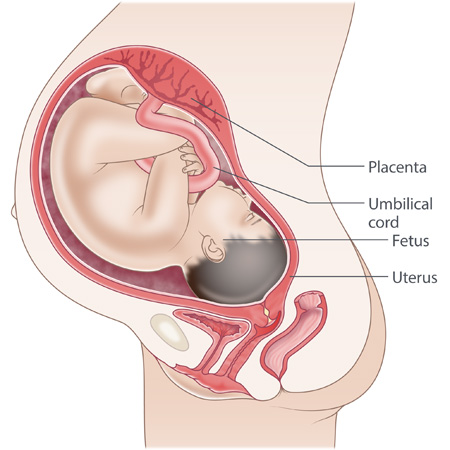
Week 40 of Pregnancy: Nearing the Finish Line
As you enter the final stretch of your pregnancy, your body and mind are preparing for the imminent arrival of your little one. Week 40 marks a significant milestone, signaling that you are full-term and your baby is ready to be born. While this can be an exciting and nerve-wracking time, it’s important to stay calm and focused on the task at hand.
Physical Changes
At 40 weeks pregnant, your body is undergoing several physical changes to accommodate the growing baby and prepare for labor.
- Increased Braxton Hicks contractions: These practice contractions become more frequent and intense, helping to soften and dilate the cervix.
- Pelvic pressure: As the baby descends into the pelvis, you may experience increased pressure and discomfort in your pelvic area.
- Weight gain: Most women gain between 25 and 35 pounds during pregnancy, with the majority of weight gain occurring in the third trimester.
- Swollen feet and ankles: Fluid retention can cause swelling in your extremities, especially towards the end of pregnancy.
- Frequent urination: The baby’s head pressing on your bladder can lead to increased urinary frequency.
- Constipation: Hormonal changes and the pressure of the baby on your intestines can slow down digestion, causing constipation.
- Backaches: The weight of the baby and the changes in your posture can strain your back muscles, leading to backaches.
Emotional Changes
Along with the physical changes, you may also experience a range of emotions in the final weeks of pregnancy.
- Excitement and anticipation: As you get closer to meeting your baby, you may feel a mix of excitement and anticipation.
- Anxiety and nervousness: It’s normal to feel anxious or nervous about labor and delivery, especially if you are a first-time mom.
- Impatience: You may be eager to meet your baby and get your life back to normal.
- Mood swings: Hormonal fluctuations can cause mood swings and irritability.
- Nesting instinct: You may feel an urge to clean, organize, and prepare your home for the baby’s arrival.
Signs of Labor
As you approach week 40, it’s important to be aware of the signs that labor is starting. These include:
- Regular contractions: Contractions that occur at regular intervals and gradually increase in intensity and duration.
- Water breaking: The amniotic sac ruptures, releasing a gush of fluid.
- Bloody show: A small amount of blood-tinged mucus is released from the vagina as the cervix dilates.
- Pelvic pressure: You may feel intense pressure in your pelvis as the baby descends.
- Backache: Labor contractions can cause severe back pain.
- Nausea or vomiting: Some women experience nausea or vomiting at the onset of labor.
Preparing for Labor
In the final weeks of pregnancy, it’s essential to prepare both physically and emotionally for labor and delivery.
- Attend prenatal appointments: Continue to attend your prenatal appointments to monitor your health and the baby’s growth.
- Practice relaxation techniques: Learn relaxation techniques such as deep breathing, meditation, or yoga to help you manage pain during labor.
- Create a birth plan: Discuss your birth preferences with your healthcare provider and create a birth plan to guide your care during labor and delivery.
- Pack your hospital bag: Pack a bag with essential items you will need during your hospital stay, such as toiletries, comfortable clothing, and a camera.
- Arrange childcare: If you have other children, make arrangements for their care during labor and delivery.
- Get plenty of rest: Rest as much as possible in the final weeks of pregnancy to conserve your energy for labor.
- Stay hydrated: Drink plenty of fluids to stay hydrated and prevent dehydration.
- Eat a healthy diet: Continue to eat a healthy diet rich in fruits, vegetables, and whole grains.
When to Call Your Doctor
Contact your healthcare provider immediately if you experience any of the following symptoms:
- Severe abdominal pain: This could indicate placental abruption or other complications.
- Vaginal bleeding: Heavy or bright red vaginal bleeding can be a sign of placental abruption or other problems.
- Sudden loss of fluid: If your water breaks or you experience a sudden gush of fluid, contact your doctor immediately.
- Contractions that are close together: If your contractions are occurring every 5 minutes or less, it’s time to head to the hospital.
- Fetal movement decreases: If you notice a decrease in your baby’s movements, contact your doctor right away.
Conclusion
Week 40 of pregnancy is a significant milestone, marking the final stretch of your journey. While this time can be filled with both excitement and anxiety, it’s important to stay calm and focused on the task at hand. By preparing both physically and emotionally, you can increase your chances of a safe and successful labor and delivery. Remember to listen to your body, trust your instincts, and seek professional help when necessary. Soon, you will be holding your precious little one in your arms, embarking on the incredible adventure of parenthood.